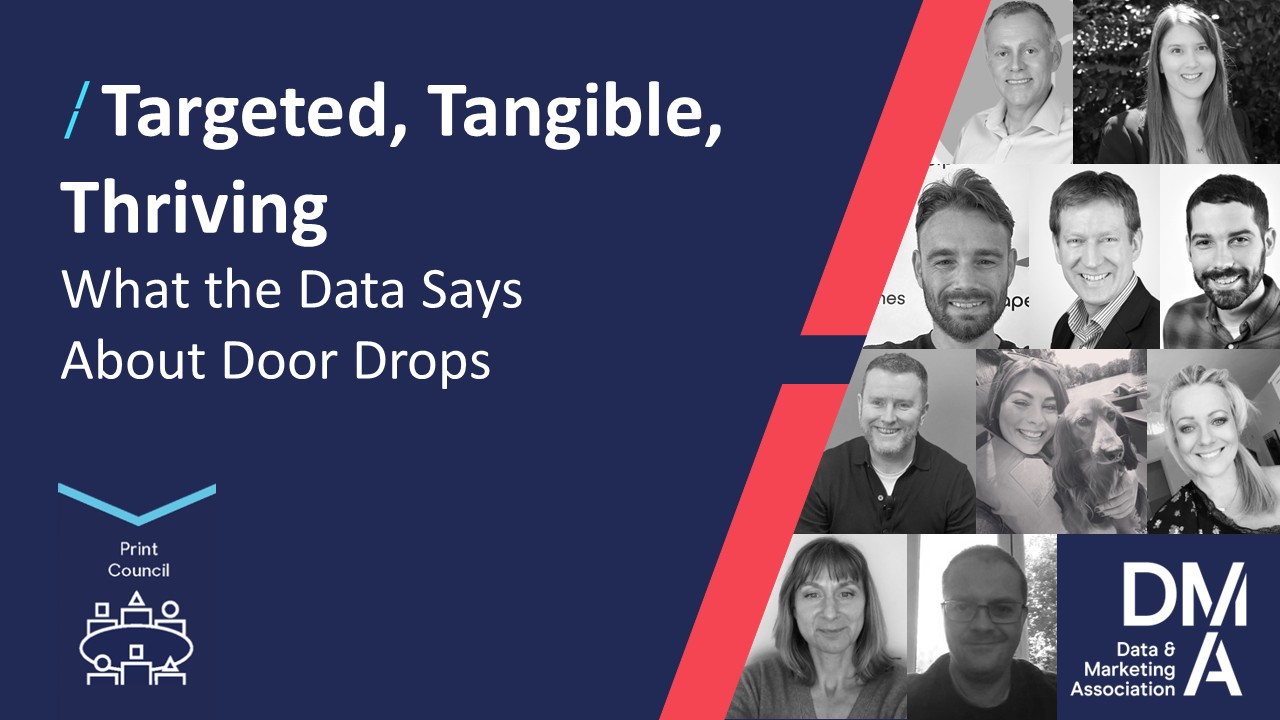Expert opinion on new Defra deal
06 Dec 2011
The 2003 Producer Responsibility Agreement
Eight years ago, the DMA signed a Producer Responsibility Agreement with Defra that committed the industry to increasing its use of suppression files, targeting and recycled paper. It also included a series of targets around the recycling rate of paper-based direct marketing material – from 30% in 2005 through to 70% by the end of 2013.
Last year, in our progress report to Defra we were able to report that we had achieved our 2013 target four years early with a 76.5% recycling rate by the end of 2009. Of course, one of the consequences of meeting and exceeding the target early was to immediately prompt discussions about a new agreement!
The aim of the new DMA/Defra deal
Simply trying to recreate the old one wasn’t practical, partly because it’s difficult to see the recycling rate rise significantly in the short term and because the Government’s targets and priorities have moved on. The Tory-Lib Dem coalition has declared its ambition to be the greenest ever government and committed itself to a zero-waste economy and challenging targets of CO2 reduction.
Industry is expected to contribute to achieving these goals, either through statutory regulation or by undertaking voluntary producer responsibility deals. As the professional body that represents the direct marketing industry, we’ve opted for the voluntary approach to negotiate an agreement that is relevant and beneficial to the industry.
The new deal and the direct marketing industry
We also wanted the opportunity to develop a deal that was genuinely mutually beneficial. A deal that would help to deliver the Government’s current objectives but also one that led to higher standards and more effective direct marketing. We wanted an agreement that didn’t just focus on less but on doing what we’re doing better. As a result, a key theme running throughout the agreement is not producing unnecessary direct marketing material – which will of course benefit advertisers and the industry as a whole by improving the return on investment.
In 2007, the Labour Government commissioned the Waste strategy for England report, which included recommendations on measures to limit direct marketing. The report stated that “much direct marketing is unnecessary and wasteful” and claimed it was costing the taxpayer between £15-30 million a year to dispose of it. And the issue of “excess waste” has not escaped the attention of the media – for instance the Panorama episode broadcast in July Why hate junk mail?.
According to the programme, the UK’s councils are spending £50 million on disposing unwanted direct marketing material. There’s a common belief that councils are stumping up huge sums of money at a time when most are scaling back services due to severe budget cutbacks.
We, the DMA, do not accept claims that direct marketing generates additional disposal costs beyond those created by other streams of waste paper, such as packaging and newspapers. However, our defence of the industry is severely undermined when householders continue to receive unwanted advertising material. Direct marketing that is irrelevant because it is poorly targeted or, in the case of addressed mail, addressed to former occupants or worse, to deceased relatives.
As a result, the new agreement includes commitments and measures around reducing unnecessary direct marketing, for instance, through the use of suppression files, better targeting and providing a single point of contact to opt out of unaddressed mail. We will also be reporting on what proportion of direct marketing material is being produced in a way that minimises its environmental impact.
Finally, the agreement requires us to have in place carbon calculators for the main paper-based direct marketing channels by the end of 2014 so that any future agreements can be based on a simple carbon reduction target. Carbon reporting is becoming more common and may soon be a legal requirement in companies’ reports and accounts as a consequence of the Climate Change Act, and will be useful to many advertisers. It will also help elevate the debate away from “junk mail” to the more strategic one of carbon reduction in line with Government objectives. It might even provide a level playing field if other media are given carbon reduction targets too!
The fact that the direct marketing industry has a voluntary agreement with government, designed to reduce waste and minimise the impact on the environment of what we do, demonstrates that we are a responsible industry that has a sustainable future. If, as a result of cutting out unnecessary waste, we can also improve advertisers’ return on investment and change consumer perceptions then that’s the icing on the cake.
From a door drop perspective, the single point of contact for unaddressed opt-out will see the merging of Royal Mail’s current scheme and the DMA Your Choice scheme. The industry will have targets to achieve awareness of 30% of the new scheme by 2014. Notably this will still be dis-integrated with the schemes run by the local free newspapers and of course will not extend outside of DMA companies. The DMA Door Drop Board Committee has set up a working party to shape this new scheme as the exact details of how this will work have not been finalised.
As part of this the DMA is planning a consultation with the door drop industry, both members and non-members, on 24 January 2012 at the DMA offices in London in anticipation of a further meeting with Defra to finalise the plans. Your input is welcomed.
Alex Walsh, Consultant to the DMA and Mark Davies, TNT Post and Door Drop Board Committee member.





Please login to comment.
Comments